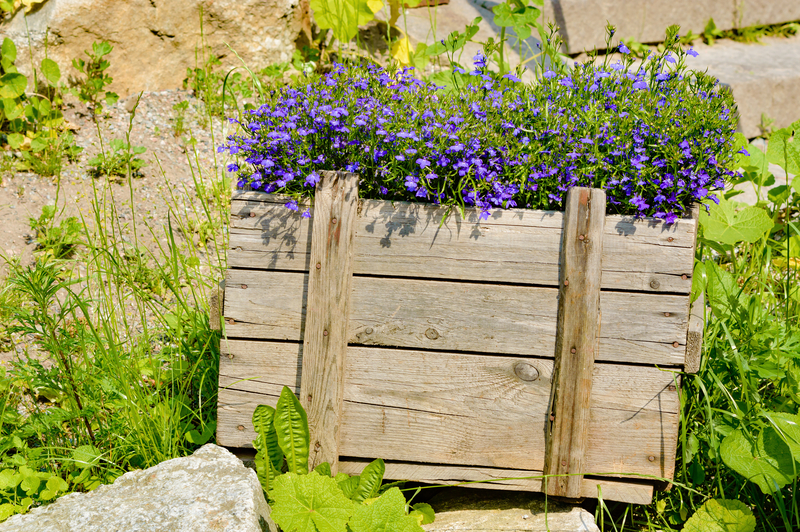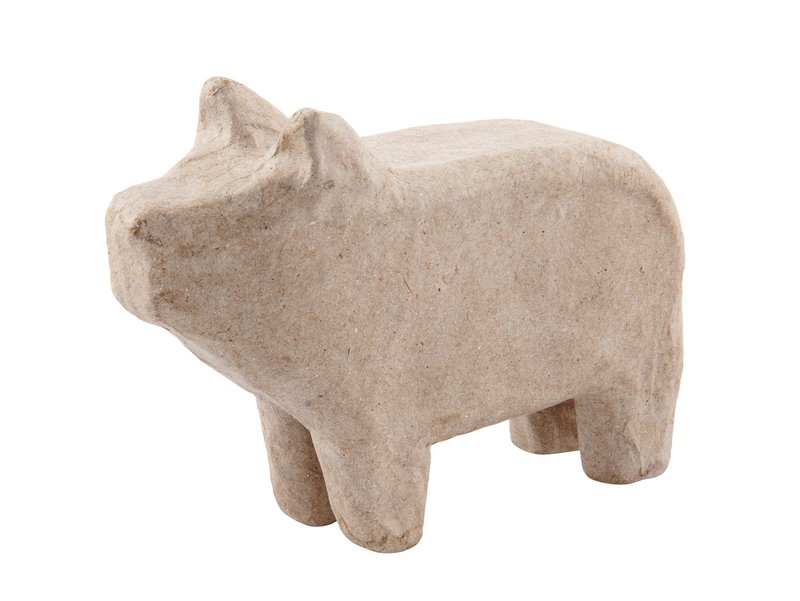Mastering the Art of Home Recycling with These Simple Tips
Transforming waste into resourceful assets is more than just a trend - it's a responsibility. As environmental consciousness grows, families worldwide are seeking practical ways to recycle at home and contribute to a sustainable future. If you're eager to learn the secrets of efficient household recycling, you're in the right place. This comprehensive guide will help you master home recycling and implement a greener lifestyle with ease.
Why is Recycling at Home So Important?
Before diving into the practicalities, it's essential to understand the impact and importance of domestic recycling. Every year, households contribute a significant portion of global waste. Properly sorting and reusing materials can help:
- Reduce landfill waste
- Lower greenhouse gas emissions
- Conserve natural resources
- Save energy
- Promote a circular economy
Each time you recycle, you make a positive impact--one that can be amplified by encouraging family, friends, and neighbors to follow your example.

Getting Started: Setting Up an Effective Home Recycling System
1. Assess Your Household Waste
Understanding what you throw away is the first step in mastering household recycling. Take a week to observe your garbage habits. Are you disposing of a lot of plastic packaging, paper, glass, or metals? Make a note of the most common items, as this insight will guide your recycling strategy.
2. Designate Storage Areas for Sorting
Failing to separate materials is a leading cause of contamination in recycling streams. Invest in dedicated bins for:
- Paper & Cardboard
- Plastics (by type, if possible)
- Glass Bottles & Jars
- Aluminum & Metal Cans
- General Waste (landfill)
- Compostables
Color-code your bins or use clear labels to ensure everyone in the household understands where each item goes.
3. Learn the Recycling Rules in Your Area
Not all recycling programs are created equal. Check with your local municipality or waste management company for specific guidelines. Find out:
- Which plastics are accepted
- How to clean and prepare items
- Collection schedules
- Electronic waste (e-waste) and hazardous material protocols
Following local rules ensures your efforts aren't wasted and can lead to higher recycling rates.
Essential Home Recycling Tips for Beginners
1. Keep It Clean: Rinse Before Recycling
Leftover food residue can contaminate entire loads of recyclables. Always rinse out containers for yogurt, sauces, peanut butter, or canned goods. A quick wash makes a significant difference and helps prevent pests around your bins.
2. Break Down and Flatten Cardboard
Cardboard boxes can bulk up your recycling bin, limiting space. Flattening and breaking them apart maximizes bin efficiency and makes them easier to transport for collection or drop-off.
3. Avoid Wish-Cycling
"Wish-cycling" is the habit of tossing items into the bin in the hopes they can be recycled. Common non-recyclable items may include:
- Pizza boxes contaminated with grease
- Plastic shopping bags (unless specified)
- Styrofoam or polystyrene
- Disposable coffee cups (unless marked recyclable)
- Broken ceramics or lightbulbs
When in doubt, check--never guess!
4. Compost What You Can
Organic waste is often overlooked in the recycling process. Composting kitchen scraps and yard clippings reduces landfill contributions and results in nutrient-rich soil for gardens. Materials you can compost at home include:
- Fruit and vegetable peels
- Coffee grounds and tea bags
- Eggshells
- Leaves and grass clippings
- Paper napkins and unprinted cardboard
5. Reuse and Repurpose
Another art of home recycling is finding new uses for old items before disposal. Get creative by:
- Using glass jars for storage
- Turning cardboard tubes into organizers
- Repurposing clothing into cleaning rags
- Upcycling furniture or decor
Every object reused saves resources and energy while reducing waste.
Advanced Recycling Strategies for Eco-Conscious Households
1. Know Your Plastics
Plastic is found everywhere, but only certain types are recyclable in many curbside programs. Check the recycling codes--typically numbers inside a triangle--on plastic products and packaging. Prioritize recycling of:
- Type 1 PET or PETE (water and soda bottles)
- Type 2 HDPE (milk jugs, detergent bottles)
Items like plastic bags, wrap, and some food containers often need specialized drop-off programs.
2. Start a Home Recycling Station
Create a central spot for your family to manage recyclables, whether it's in the kitchen, garage, or utility room. A home recycling station encourages consistency and makes sorting simple--especially for kids.
3. Recycle Electronics and Batteries Responsibly
Electronics and batteries should never go in household recycling bins, as they contain hazardous materials. Check for local e-waste collection days or specialized drop-off centers. Many retailers also offer programs for responsible electronics recycling.
4. Shop Smarter to Reduce Household Waste
Reducing packaging and single-use items at the source is a smart way to minimize recycling loads. Here are strategies for eco-friendly shopping:
- Buy in bulk to cut down on packaging waste
- Choose reusable bags, water bottles, and containers
- Select products with recyclable or compostable packaging
- Support brands committed to sustainability
Overcoming Common Home Recycling Challenges
Space Constraints
Limited space doesn't have to hinder your recycling efforts. Stackable bins or compact containers can fit under the sink, in small pantries, or closets to keep materials organized without eating up living space.
Sorting Confusion
New recyclers often feel overwhelmed by what can and cannot be recycled. Posting a clear, simple reference chart near your recycling area can ensure everyone in the home makes the right decision every time.
Dealing with Odors
Rinsing containers helps, but during hot months, odors can linger. Line bins with newspaper, empty regularly, and keep containers covered to stay ahead of smells.
Motivating Everyone in the Household
Recycling succeeds best when it's a team effort. Get kids involved with fun sorting games, challenges, or by turning recycling into a family project. Lead by example and celebrate your collective impact.
Benefits of Mastering the Art of Home Recycling
Why should you invest time mastering home recycling? Aside from the environmental impact, there are surprisingly many personal and community benefits:
- Saves Money: Recycling can reduce the amount of trash you pay to dispose of.
- Builds Good Habits: Children and adults alike learn responsibility and community spirit.
- Community Pride: Cleaner neighborhoods and public spaces improve quality of life.
- Supports Local Economy: Recycling programs create jobs and support local businesses.
Long-Term Habits: Creating a Sustainable Recycling Routine
Stay Up-to-Date with Recycling News
Municipal requirements and acceptable materials can change. Check your local waste management updates regularly to ensure your practices are current and effective.
Track Your Progress
Keep a recycling journal or use apps to track how much waste you divert from landfill. Setting monthly goals can keep you motivated and help you spot areas for improvement.
Share Your Knowledge
Empower your community by sharing recycling tips, success stories, and resources with neighbors, friends, and through social media. The more people practicing home recycling, the greater the impact.

Frequently Asked Questions About Home Recycling
What items can never be recycled from home?
Most programs don't accept plastic bags, greasy pizza boxes, polystyrene foam, hazardous waste, food-soiled items, or certain glass like crystal or Pyrex.
How can I recycle batteries and light bulbs?
Local hardware stores, electronics retailers, or community recycling events often offer drop-off bins for these items. Never put them in regular bins as they can leak chemicals or cause fires.
Can I recycle plastic bottle caps and lids?
Check with your local program--some accept caps if they're attached to clean bottles, while others require they be thrown away.
Conclusion: Start Mastering Household Recycling Today
Mastering the art of home recycling is a tangible step toward a cleaner, greener, and more responsible future. By implementing these simple tips, you'll contribute to preserving resources, protecting our planet, and inspiring those around you to follow suit. Remember, every plastic bottle, paper scrap, and composted peel adds up--and your efforts truly matter.
Take the initiative today: set up your home recycling system, educate your family, and set new standards for eco-friendly living. Small steps, when practiced consistently, can bring monumental change to your home and the world beyond.
Ready to Make a Difference?
Start mastering the art of home recycling now. Your actions today shape a healthier planet for tomorrow.